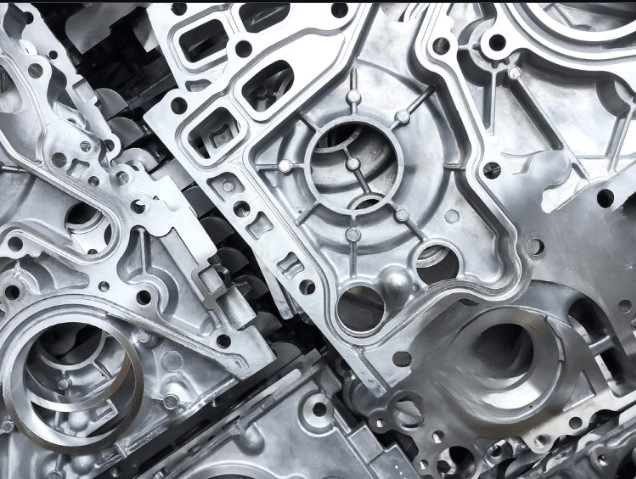Cast aluminum is a popular material that is used in a wide range of industries, including automotive, aerospace, and construction. It is known for its lightweight and high strength-to-weight ratio, making it an ideal choice for applications that require both durability and mobility compared to other metals.
Current Price Per Kilo for Cast Aluminium
The current prices for cast aluminum range from $1-1.10 globally. However, as with any material, the price per kilo of cast aluminum can vary depending on various factors.
A more affordable choice is to use scrap aluminum. However, scrap aluminum prices vary from the source. A metal from irony aluminum (just steel edges) starts at $1.40. Other sources of scrap aluminum metals may come from engine blocks, car batteries, and aluminum cans.
A scrap metal pick may be requested from a scrapper or recycling plant for large quantities. Other metals, such as red brass, copper from copper wire, and stainless steel, are also available in these facilities.
Factors That Affect Cast Aluminum Prices
Scrap Metal Prices

Scrap metal prices and the price of cast aluminum are often interconnected, and changes in the scrap metals can directly impact the latter. Cast aluminum, used in various industries, is made by melting and pouring it into a mold to form a specific shape.
The price of cast aluminum per kg is subject to various factors, including the cost of raw materials, energy, and labor. One of the most significant factors that affect the price of cast aluminum is the price of scrap metal.
Purity of The Material

The percentage of other elements in the metal determines the purity of aluminum. Pure aluminum is 99.99% aluminum, with trace amounts of other elements. Iron, silicon, copper, magnesium, and zinc are the most common impurities in aluminum. These impurities can affect the properties of aluminum, such as its strength, hardness, and ductility.
High-purity aluminum is more expensive, requiring more energy and resources to remove impurities from the metal. However, high-purity aluminum has better properties than lower-purity aluminum, making it more valuable.
Global Market Demand
The global market demand for cast aluminum is a crucial determinant of its price, as it affects both the supply and demand dynamics of the market.
One of the main drivers of global market demand for cast aluminum is the economic growth of countries worldwide. The construction industry, in particular, is a significant consumer of cast aluminum, as it is used in constructing bridges, buildings, and other structures.
The automotive industry is another major consumer of cast aluminum, as it is used to produce engine blocks, wheels, and other components. Consumer preferences, fuel economy regulations, and technological advancements in automotive design influence the demand for cast aluminum in the automotive industry.
Cost of Labor and Production
Skilled labor is required to operate the equipment and perform the casting process. In many countries, the cost of skilled labor is relatively high, which can increase the cost of production and, in turn, cast aluminum prices. Labor laws, wage rates, and the availability of skilled workers influence the cost of labor.
The cost of production is another significant factor that affects the price of cast aluminum per kg. The production process requires specialized equipment, such as furnaces and casting machines, which can be expensive to purchase and maintain.
The cost of raw materials, such as aluminum ingots, also impacts the cost of production. Other factors that can affect the cost of production include energy costs, transportation costs, and taxes.


